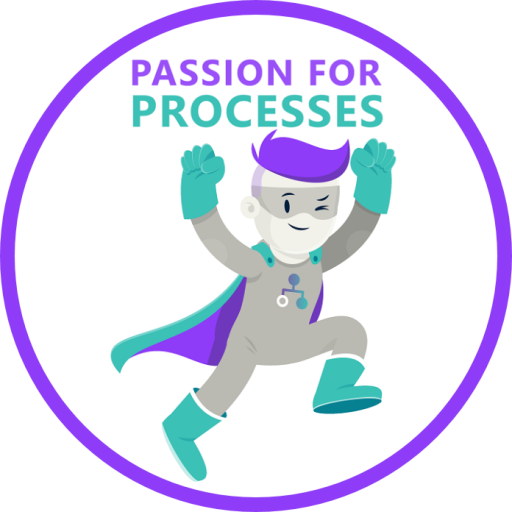

Business processes are becoming increasingly complex and convoluted with rapidly changing technology, volatility in global markets, and opportunities emerging from the least expected areas. Consequently, business process management (BPM) — one of the ways to make business units proactive, efficient and profit-driven — is gaining prevalence. The global BPM spend, which stood at $130 billion in 2013, is expected to grow to $233 billion by 2020, representing an annual growth rate of 6%-7%.
Challenges
Although BPM has gained enough attention in recent years, it’s still saddled with challenges that companies need to conquer to achieve better operational efficiency.
- Top management support: Despite being known for its ability to significantly improve the operational efficiency of business units, BPM often fails to gain support from top management. Instead of strategizing business processes, the upper echelons tend to focus on other tasks that yield a quicker ROI, even if at lower percentages.
- Effective strategies: Effective BPM needs a strong strategy. Unless proper leadership is established with clear goals and responsibilities in place, BPM cannot deliver the required ROI. Also, a strong BPM plan needs an effective strategy for communication.
- IT element: BPM often relies on automated systems to simplify and streamline the management process. However, it’s important not to go overboard with automation. If more and more aspects of the business process are automated, they will override the human element, which is crucial for making sound managerial decisions. Computers are great aides, but poor masters.
- Proper governance: Governance needs to go beyond automation of processes for optimization of BPM. The instatement of a BPM project manager, who will be responsible for running the project, and that of a process architect, who will set in place analytical techniques and asses them, would be a good idea.
- Proper management of BPM initiatives: A dedicated team should manage BPM initiatives within your organization. BPM resources and knowledge should be shared, success stories and best practices should be promoted, and proper BPM training should be imparted to the employees to make all the processes efficient and effective.
- Start small: BPM should initially be implemented at a lower level. Undertaking BPM is not an activity, it’s a continuous process. As BPM needs to be monitored closely, it should be started on a small scale so as to avoid chaos at the organizational level.
- Be proactive: We forget that humans are a key component of BPM. And that like any other cross-departmental initiative, a cultural change or a changed management initiative will need to be incorporated for the process to be a long-term success. Also, the process needs to be studied in depth to identify potential bottlenecks and remove them before they lead to a failure of the entire project.
- Integration with EA and BI: BPM is more powerful and effective when it’s successfully integrated with EA, BI, PPM and SOA. Project management methodology tools such as Agile, Scrum, or Lean/Six Sigma can also be integrated if they happen to be a project requirement.
What is the future of BPM?
BPM is more than a process; it’s a way of doing business. When more and more organizations are going digital and global, BPM needs to become a holistic management discipline that takes an integrated approach to business as a whole.
Social BPM
Social BPM is all about combining the elements of BPM with digital technologies to facilitate formal as well as informal processes. It also deals with the use of social computing, and mobile and advanced analytics to optimize user experience and encourage positive behavior.
Moreover, social BPM brings together a business’s social, organizational and technological aspects for well-integrated processes. It encourages businesses to manage processes and projects better through transparent communication.
Benefits
- Effective communication: The main focus of social BPM is to facilitate interpersonal communication and cross-functional collaboration to improve interaction between the parties involved.
- Refined enterprise architecture: Social BPM facilitates collaboration between various parties to make the overall process effective.
- Facilitates culture evolution: Social BPM will keep the organizational culture open by allowing a sharing of knowledge and inspiring collective wisdom.
- Innovation: Social BPM facilitates the management of new and unique business ideas through their entire life cycle.
- Better customer experience: Social BPM uses digital technology to present customers with more options. Also, with continuous customer feedback, the processes can be modified to offer better experience.
Integration with BI
One of the key futuristic elements of BPM is its integration with BI for the optimization of business processes. Traditionally BPM was limited to processes, but with the integration of BI, users get access to relevant information for better process execution. For example, a manager required to set a budget will get access to relevant information and analysis, leading to an insightful decision.
Benefits
- Optimized decisions: Integrated BPM and BI offer necessary information to managers to facilitate optimized decision making processes.
- Business agility: The business is made agile and flexible through dynamic linking between processes and data.
- Cost efficiency: Intelligent business processes enable business and IT professionals to work together in harmony, leading to cost efficiencies.
- Forward looking planning: The successful integration of BI applications with BPM allows business units to peek into emerging trends. BPM managers can study data to come up with proactive business decisions and be one step ahead of their competitors.
Career prospects
With the rising use of IT in day-to-day business decisions, business process managers are bombarded with a lot of information. Unless BPM managers are trained in dealing with this mountain of information, and know how to work their way through it to make effective decisions, new age BPM won’t be effective. Consequently, companies have started looking for managers who have:
- IT skills: Technical skills are required to manage as well as leverage the systems to analyze data.
- Interpersonal skills: These skills are needed to collaborate effectively with various parties involved in BPM.
- Organizational skills: To avoid chaos and maintain discipline in the implementation of BPM, organizational skills are a must.
Although there are few colleges who offer dedicated courses for BPM, a candidate can become a successful business process manager by obtaining a good business administration or computer science degree. There are several high-ranking colleges across the globe that offer relevant and helpful curriculum in these areas.











